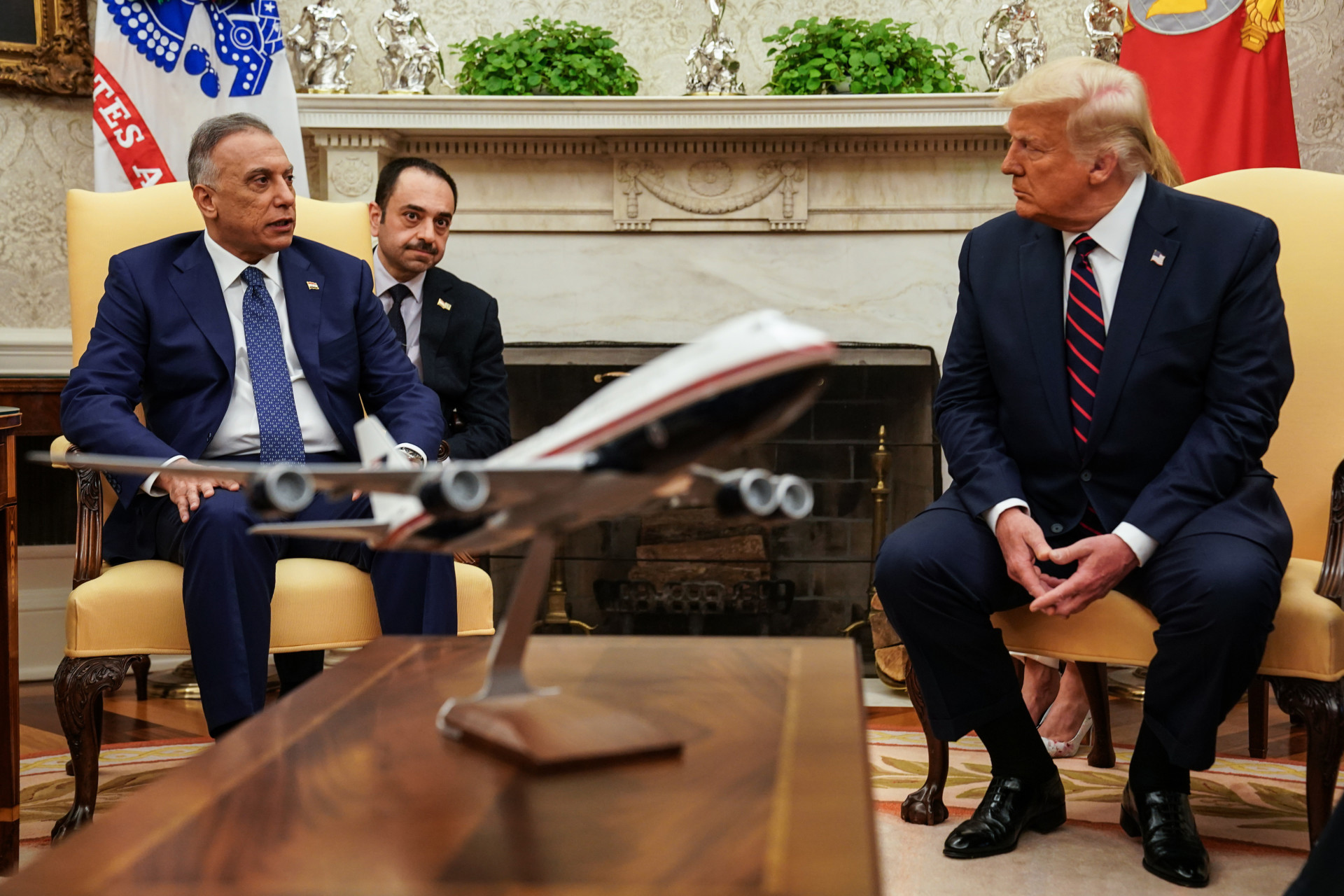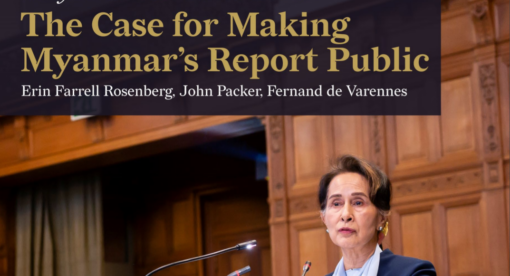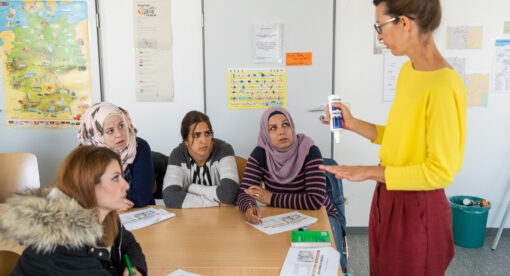U.S. Secretary of State Athony Blinken and Iraqi Foreign Minister Fuad Hussein are set to hold a strategic dialogue Wednesday, but these talks will be anything but strategic. The problem with Iraq is that it lacks coherence as a state. Baghdad is also not exactly Washington’s ally; rather, it is a polity heavily under the influence of the United States’ regional foe, Iran.
At best, the United States can hope to continue to engage with the weak Iraqi government on numerous tactical levels, such as trade, education, and health sectors — moves that will help Washington avoid leaving Baghdad wide open for Tehran to exploit as it pleases. This is a direct consequence of the U.S. decision to effect regime change in 2003, which set into motion the events that led to the 2011 departure of U.S. forces.
The U.S. military departure allowed Iran to consolidate its influence in its neighbor to the west, both directly and indirectly via proxies. Over the past decade or so, U.S. policy toward Iraq has been dominated by the goal to counter ISIS. The unintended consequence of destroying the caliphate of the transnational jihadist entity is that the Iranians, through their allied Iraqi militias, have extended their influence to Iraq’s Sunni areas. Not only does the United States lack a strategy to roll back Iranian influence in Iraq, but it is actually ceding space to pro-Tehran actors.
Further undermining the U.S. position are the Biden administration’s efforts to negotiate with Tehran to restore the 2015 Iran nuclear deal. This diplomacy reduces Washington’s ability to counter the Islamic Republic vis-a-vis Iraq. On the contrary, the nuclear talks enhance Iran’s position. This is the geopolitical context in which this latest round of U.S.-Iraq strategic dialogue is taking place.
Dr. Kamran Bokhari is Director of Analytical Development at the Newlines Institute. Dr. Bokhari is also a national security and foreign policy specialist at the University of Ottawa’s Professional Development Institute. Bokhari has served as the coordinator for Central Asia Studies at the State Department’s Foreign Service Institute (FSI). Follow him on Twitter at @KamranBokhari.
Unfulfilled Promises and the Need for Talks
Rasha Al Aqeedi
The Strategic Framework Agreement for a Relationship of Friendship and Cooperation (SFA) and its accompanying Status of Forces Agreement were signed in 2008 in the light of the 2007 Declaration of Principles for a Long-Term Relationship of Cooperation and Friendship signed by then-U.S. President George W. Bush and then-Iraqi Prime Minister Nouri al-Maliki. The U.S. had agreed to withdraw its troops from Iraq within three years or earlier. By December 2011, U.S. troops were completely out of Iraq, and less than two years later ISIS had set foot in Fallujah and gradually conquered two-thirds of the country in six months, compelling the U.S. to resend troops in much smaller, yet significant, numbers. The withdrawal of U.S. troops, who officially were declared an occupation force, is undoubtedly a popular demand in both Iraq and the U.S. It is also a logical and realistic conclusion to a war that completed its mission, according to the governments of both countries.
Herein lie the shortcomings of the strategic dialogue, a set of discussions both public and behind the scenes, that reaffirms agreements signed in 2008 during a drastically different geopolitical and security context in Iraq. The agreements appear to preserve the relationship and friendship between the U.S. administration and the Iraqi government through thick and thin, but they fail to tackle, even minimally, the underlying complexities in Iraq that led to the rise of ISIS, the economic failures, the domination of militias over state affairs, and the eventual return of U.S. troops and the conversation about their withdrawal once again.
The preamble of the SFA mentions “the rights and principles that are enshrined in the U.N. charter and their common interests” as the base of a desire to establish a long-term relationship between the U.S. and Iraq. Section II of the agreement focuses on supporting Iraq’s democracy and institutions in order to enhance Iraq’s status regionally and internationally. The bases of the SFA and its key aims are both null today. The Iraqi government continues to violate basic human rights with impunity, and the U.S. fails to produce as much as a condemnation for killings of more than 600 unarmed protesters between 2019-2020 or the ongoing campaign of assassinations and intimidation by state-sponsored militias. The Trump administration imposed a set of sanctions on individuals, but no efforts have been made to include these violations at state-level discussions. Iraq’s institutions and democracy continue to exhibit weakness in the face of the growing influence of militias and death squads.
The United States has maneuvered around Section I of the agreement regarding the use of Iraqi land as a launching point for attacks against other countries, limiting its targets to within Iraqi borders despite the goal being restricting Iranian actors and/or influence. Nonetheless, the outcomes have escalated tensions inside Iraq because they provided one-time measures with an absence of a political follow-up.
On one hand, the continuum of a strategic dialogue or any positive relationship with the United States, given the influence and power of the Iran-aligned resistance groups in Iraq, is worth preserving. But any dialogue with Iraq that fails to incorporate human rights, state and militia aggression, rampant corruption, and Iraq’s deteriorating economy will remain a symbolic gesture aimed to preserve an unsustainable status quo.
Rasha Al Aqeedi is a Senior Analyst and the Head of the Nonstate Actors program in the Human Security Unit at the Newlines Institute. Prior to joining the Newlines Institute, Al Aqeedi was the editor in charge of “Irfaa Sawtak,” a U.S.-based platform that offers insights into post-conflict communities in Iraq and Syria. She has also served as a Fellow with the Foreign Policy Research Institute and George Washington University’s Program on Extremism and tweets at @RashaAlAqeedi.
The views expressed in this article are those of the authors and not an official policy or position of the Newlines Institute.







